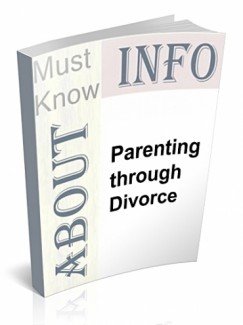Description
No matter how hard people work to be terrific co-parents, there are always some communication pitfalls and traps that can catch parents by surprise. By understanding and recognizing the loopholes and possible mistakes that can happen when co-parenting, you are using one of the best ways to constantly assess your communication with the other parent. It avoids having your children getting involved in any conflict, misunderstanding, or negative aspect of the divorce.
BECOMING DEFENSIVE
Keep in mind that sometimes, even when using reframes, active listening, “I” messages, and focusing on the positive and collaborative aspects of the co-parenting relationship there is still the potential for finding yourself in defensive mode. Once you become defensive you are no longer willing to hear what the other person is saying and you are more focused on defending yourself with a retort or remark that you are with hearing what message is being sent, even though it may be communicated poorly.
If you find yourself becoming defensive because of what your co-parent is saying, immediately get curious about your reactions. You may have to ask for a minute to calm yourself and get back on track. This can be accomplished by simply saying “I really want to hear what you are saying and I need a minute to just consider your comments. Do you mind if we just take a short break?” During the few minutes that follow, calm down by taking a few deep breaths and thinking about what the other person said that got you in defensive mode. Identify what it was and address it so that you can put it behind you and listen when the conversation starts again. This may be a self-conversation, not out loud but in your head, that sounds like.
“Ok, when I hear that same old comment about my not being on time, I get so upset. What I need to remember is that my being late is affecting my kids, and I want to be a good parent. I accept the fact that I was late and this upset the family, so I need to listen and suggest a way to prevent this in the future. ”
Becoming defensive is a natural emotional way to protect ourselves from things we don’t want to hear. In some cases, they may be valid, but in others, they may not be accurate at all. Arguing with the other parent about what opinion is right and what is wrong is likely not to solve anything, plus it will be extremely counterproductive to the collaborative atmosphere you are trying to foster. Being right is not as important as keeping your kids out of conflict.

